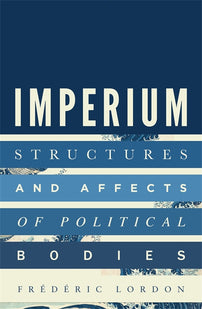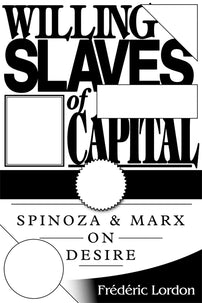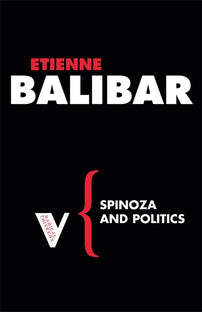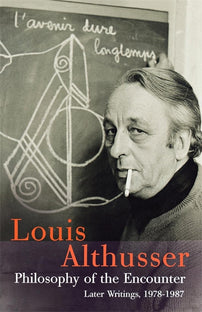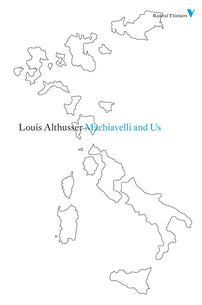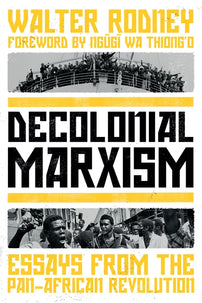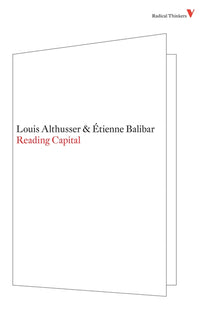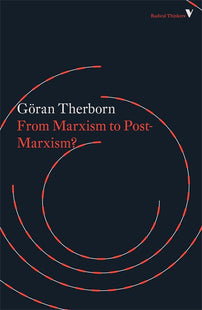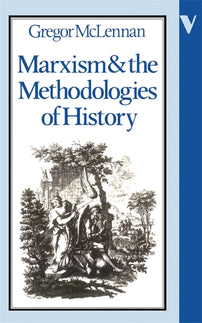‘Radical Thinking Was No Longer Allowed in the Media’. An Interview with Nicolas Vieillescazes
Left publishing is experiencing a long-overdue renaissance internationally. In this interview, Nicolas Vieillescazes shares his experience building a new editorial programme with Editions Amsterdam and advancing political analysis through publishing.
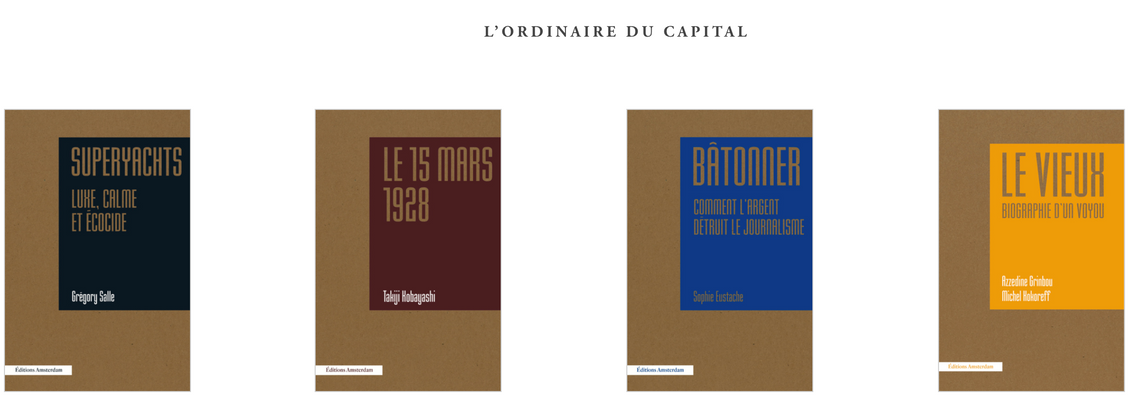
Interview conducted by Laëtitia Riss
NB: This interview was originally published with Le Vent se Lève on 25 March 2021.
The publisher Nicolas Vieillescazes has been running Éditions Amsterdam since 2016. As part of our series ‘L’atelier des idées’, he agreed to kick off a series of portraits, prepared by our editorial team, of the people who keep critical thinking alive on a daily basis. For, behind the authors and the bookstore shelves lie hidden, most often in the shadows, publishers, editors, and others engaged in the book trade who shape the intellectual landscape through their publishing choices, influence the debate of ideas and take part in the construction of a new cultural hegemony. Éditions Amsterdam, founded in 2003, spearheaded the revival of Spinozist studies in France and the translation of Anglo-Saxon Marxists; with an editorial line focused on defence of the revolutionary ideal of equality, it is one of these workshops open to us for an interview. Nicolas Vieillescazes discusses the characteristics of publishing houses and the projects they pursue, and dives into intellectual history from the neoliberal paralysis of the 1970s-1980s to the current renaissance of a cultural environment favourable to the construction of a new ‘Marxist culture’. Interview by Laëtitia Riss.
After several years at Les Prairies Ordinaires, you joined Éditions Amsterdam in 2016 and have been its editorial director for almost five years. How does one become a publisher, and how did you come across this house founded in 2003 by Charlotte Nordmann and Jérôme Vidal?
I became a publisher by chance. In the 2000s I was living in London and doing a philosophy thesis. To earn a living, I started translating or seeking to translate theoretical works (Marxist, postcolonial, pragmatist...) from English. It was at that point that I came into contact with new Paris publishing houses such as Questions Théoriques and Éditions Amsterdam, for whom I first translated (with Olivier Ruchet) Provincialising Europe by Dipesh Chakrabarty. A few years later, from 2007, I also started working, still as a translator, with the founder of Les Prairies Ordinaires, Rémy Toulouse. We discussed a lot, I proposed projects and translations to him... When he was appointed literary director of La Découverte in 2010, he asked me to succeed him at the Prairies.
The beginnings were frankly chaotic, and for me, coming from university and a rather ethereal and solitary discipline, I discovered that being a publisher, especially in a very small company where there is almost no division of labour, is not just about having ideas for books to publish; it’s a social job and involves a whole range of skills and practical knowledge – relations with authors, of course, but also with foreign publishers, agents, graphic designers, printers, representatives, booksellers, journalists, a whole host of people and institutions that allow a book to exist and ensure its public existence. A good book is not only a good text, it is a material object and a commodity. You don’t just have to make good books, you have to make them known – this ‘making known’ begins with the layout of the books, the choice of paper and the distribution in bookshops.
In 2016, Olivier Brunot, the manager of Éditions Amsterdam, was looking for a new publisher, simply to reissue the house’s backlist. We met and I suggested that we build a real editorial programme, since, whatever its quality, a publisher’s list is only alive when it publishes new works. The catalogue of Les Prairies Ordinaires, that consisted of about sixty titles, was taken over by Éditions Amsterdam, and it is within this expanded framework that I have continued my editorial work.
Does the name of the company refer to the city, which has marked European intellectual history as a place of free and flourishing printing, or is it for another reason?
Yes, that’s exactly it! Amsterdam as a place of alternative enlightenment, the ‘radical enlightenment’, according to Jonathan I. Israel, whose book The Radical Enlightenment. Philosophy, Spinoza and the Birth of Modernity (1650-1750) we reissued last year. The founders of the house, in particular Jérôme Vidal, were greatly inspired by Spinoza. In fact, there was originally a series of Spinoza studies, ‘Caute!’, directed by Laurent Bove, Yves Citton and Frédéric Lordon.
Éditions Amsterdam claims a critical and radical position ‘in the realm of ideas’ and supports ‘the emergence of a generation of left-wing intellectuals’. How is the political battle being waged in the publishing world?
This was indeed the historical orientation of the house. However, one can put many things under ‘critical’ and ‘radical’. In a period such as ours, where everything is extremely vague, where words are used to say everything and their opposite – just think of the use made by the far right of words stolen from the left, although this is nothing new – it is important to assert very clear ideological lines. Not so much on the objects worthy of study – for my part, I am interested in art, geography and philosophy as much as politics – as on principles. That’s where the dividing line lies. Radicality, if you want to use this word that I don’t like very much, consists for me in an intransigent attachment to the principle of equality, in the face of opponents who, despite their fine speeches, care little about it or would like to do without it. We know, and the polarisations of the present day constantly remind us, that this old battle is far from being won. Oppressed groups are always asked to ‘not be excessive’. They are asked to speak quieter and less stridently, but criticism of tone is only a means of disqualifying their very demands. The apologia for nuance or moderation has been a constant feature of reactionary rhetoric since the French Revolution, and it raises the scarecrow of ‘excesses of equality’ every time the oppressed seek to make their voices heard.
Alternatively, in a reassuring Tocquevillian twist that mainstream intellectuals were so fond of in the 1980s and 1990s, we are told that equality is progressing inexorably, behind people’s backs, so there is no point in rushing it. These days, a bunch of media pundits unanimously denounce the ‘excesses’ of feminism, anti-racism, etc. In the eyes of the dominant, who have never given up anything willingly, any egalitarian demand is intrinsically unacceptable, and the denunciation of alleged excesses is simply aimed at silencing women, racialised people, workers, etc.
As for the political battle, the advantage of a publishing house, at least one like ours, is that it is not directly situated in the space-time of political action. For example, we do not publish current interventions or texts on subjects of the immediate present. Firstly, for practical reasons: because we publish few titles (15-20 per year), and because we consider that the wealth of a house lies in its catalogue and devote a lot of time to each book, we favour texts that will have a fairly long life. This orientation is also dictated by financial constraints (we do not have the means to organise large promotional campaigns) and, above all, by the functional specialisation of the media: today there are many places where you can find reliable information and discussion, even in-depth discussion, of current events. A book must therefore be something other than a vector of information and/or opinions, and have an originality, breadth and density that will allow it to exist alongside other media and in the long term. It must be part of a ‘semi-autonomous’ intellectual space that lies both outside and at the conjunction of the academic, media and political fields, in a difficult balance to maintain between the conjunctural and the systemic. This is not easy, especially as we must be wary of pretensions that are sometimes very seductive: for example, the tendency to see an ‘anthropological break’ every time a new iPhone model is launched, or historical ruptures absolutely everywhere. Almost every week, new books come out explaining that everything has changed (and since the beginning of the pandemic, it’s been even worse). Hence the proliferation of books entitled ‘the society of this or that’, ‘the capitalism of this or that’, ‘the era of this or that’, or, of course, the compounds of ‘-cene’, which have become almost innumerable. This is a special category: pseudo-important books, written by real researchers, but which serve above all to feed the need for novelty pushed by the media, which will hasten, in a perfect circularity, to celebrate their importance, and move on to the next one, and so on. We seek to produce rigorous books that analyse a ‘long present’, independently of fashions and avoiding the pitfall of too much specialisation.
So, to come back to your question about the political battle, we participate in it, in our very modest measure but in a lateral way. Our first goal is to make good books, that is to say, useful books, which can serve, for as long as possible, to understand something of the systemic issues of the time and contribute to the elaboration of a new left-wing culture.
The series ‘L’Ordinaire du Capital’ was launched in 2017. It brings together anthropologists, geographers, sociologists, writers, directors, journalists, activists... and maps the political, economic and social mutations that are at the heart of our daily lives. What are the needs that gave rise to this collection? Is it a way of speaking to ‘ordinary’ readers, who are not always theoretically armed? This semester, a book on ‘superyachts’ by the sociologist Grégory Salle is being published, which you present under the sign of the secession of the elites, a theme that is more than topical...
The collection was proposed by Allan Popelard, a professor of history and geography and a contributor to Le Monde diplomatique. Our first discussions date back to early 2015: Allan wanted to deal with the conditions of life under capitalism. Hence the choice of ‘the ordinary’, which also corresponded to the fact that at the time I was working at Les Prairies Ordinaires. We wanted to produce short, accessible, inexpensive books, written by a variety of authors (academics, journalists, writers, etc.) and which would pay particular attention to form, narrative and writing. We wanted the texts to have a personal touch, which is not often found in theoretical essays.
At the time when Allan and I started work on this series, Pierre Rosanvallon had just launched a series entitled ‘Le Parlement des invisibles’ at Éditions du Seuil, borrowing from Jacques Rancière a certain idea of the invisible ‘sans-part’: in fact, it amounted to transposing an image of the sans-part into a strange parliamentary model that seemed to reduce the problem of unequal social relations to a simple ‘lack of representation’. On the other hand, it dissolved the issue of social structures and situations into social types, a notion borrowed as much from 19th-century realism as from today’s talk shows (in parallel to this series that featured famous French writers, ‘real people’ could post their life stories on a website). Now, the issue for us was to characterise the ‘system’, and we chose to emphasize the fundamental notion that our everyday world is massively dominated by something called ‘capitalism’, which is more than an economic system insofar as it determines, fundamentally but in an infinite number of ways, our collective condition (including by incorporating pre-existing dominations). The blind spot of Rosanvallon’s project – and of philosophical approaches in general – lies in the idea that politics and its institutions can be conceived at a distance from, or independently of, the socio-economic regime, i.e. the material structures of collective life.
Our series does not have the encyclopaedic ambition of establishing a taxonomy of the contemporary world, but develops according to proposals, in a random and systematic way. It is systematic in its principle, as I said, while seeking to avoid the boredom of repetition and the illusion that describing the totality means enumerating the entire series of its elements (‘there is a, b, c, d...’). The social totality can be described very effectively through particular objects, small-scale situations and singular modes of representation – literature shows this amply. A good example of this is Superyachts. By studying a phenomenon that may seem anecdotal, since it concerns only a few thousand pleasure boats in the world, the sociologist Gregory Salle unfolds various processes of contemporary capitalism: the secession of the rich and their ‘ostentatious seclusion’, the competition between billionaires, the strategies of tax optimisation and evasion and, of course, ecocide.
[book-strip index="1" style="display"]Working with series editors is one of the keys to the dynamism of a publishing house. Could you shed some light on how the combination of editorial director and series editor actually works, and on the collective projects currently under way?
To explain a bit more, I can tell you how Éditions Amsterdam is organised. Apart from the manager, who is also the owner of the company but does not intervene on the editorial level, there are three of us: Eva Coly is in charge of production planning, layout, and relations with printers and graphic designers; Lambert Clet is in charge of marketing and commercial development, but he also brings in manuscripts and edits some of them; and I see to most of the manuscripts, editorial programming and coordination, and work with most of the authors and the series editors. Around this small core of people who run the shop on a daily basis, we are trying to build a larger editorial group, people who are editorial advisors and propose books from time to time, and others, the actual series editors, who publish from one to four titles per year.
There are, in fact, two types of small publishing structures. The first, which is the most widespread in France today, is personal in nature: the founder or a pair of founders build, alone or with a small team, a catalogue in line with their tastes, interests and political convictions. The second corresponds to the development of Éditions de Minuit or Éditions Maspero in the 1960s and 1970s: the founder publishes books in the fields they know, but seeks to extend the catalogue to other fields and, because no one can know everything, calls on specialists. This is a good way to avoid making mistakes, and to discover authors who have only published in academic journals or who are still working on their thesis, for example. I prefer the second way, firstly by temperament, but also because I have twice taken over a publishing house and did not want to break with the original line. However, there are many ways of being faithful, and faithfulness does not imply slavish imitation or conformism. I thought it would be a good idea to extend certain existing lines, to develop new ones, and to introduce new themes, according to a principle of complementarity and variation (because what also counts is to not become bored and weary). I only abandoned what was of interest just to an academic audience.
In addition to the collection ‘L’Ordinaire du Capital’, which we just mentioned, there is now ‘Les Prairies ordinaires’, on artistic and cultural subjects, a collection of Marxist theory, ‘Lignes rouges’, edited by Isabelle Garo, Stathis Kouvélakis, Laurent Lévy and Ugo Palheta, and the collection ‘Contreparties’, edited by Jocelyne Dakhlia and Abdellali Hajjat, which seeks to counter the many false ideas about Islam and Muslims. We will soon have a collection on contemporary theorists edited by Charlotte Nordmann and Jérôme Vidal. Others are in preparation, which we will talk about in due course.
Translation is central to the Amsterdam publishing project. What are the criteria for the company to decide to introduce a text to French readers? Do you remember a work that you felt was particularly lacking in our intellectual landscape?
Translation was indeed central to both Les Prairies Ordinaires and Éditions Amsterdam. At the time these two publishing houses were established, in 2005 and 2003, there was an undeniable void in many fields that were already very familiar in the English-speaking world but did not exist at all in France, except of course for a few specialists: the famous ‘studies’ (gender studies, queer studies, postcolonial studies, cultural studies...) which have become such a bugbear in right-wing circles, or what is generically called ‘theory’ or ‘critical theory’, which is structurally defined by the politicisation of knowledge. However, in the 1980s and 1990s, the depoliticisation of the social sciences in France was very marked, largely due to the context of political retreat. Jürgen Habermas and Anthony Giddens were the paradigmatic intellectuals of this period. Radical thought, especially Marxism, was no longer allowed in the media, in the academy or from major publishers. The end of the twentieth century was characterised by a phenomenon of ideological glaciation.
Things began to change with the creation of Éditions Agone by Thierry Discepolo in 1990 and Raisons d’Agir by Pierre Bourdieu a few years later. Éric Hazan founded La Fabrique at the end of that decade. At the same time, media criticism and alterglobalism, promoted by Acrimed, ATTAC and Le Monde diplomatique, contributed to changing the intellectual and political landscape on the left. On the journal side, we should mention Vacarme, Multitudes and Contretemps. I mention this history to underline that in their own, more theoretical way, Les Prairies Ordinaires and Éditions Amsterdam were part of this movement.
Translations allowed small publishing houses to exist at that time: translating was expensive but houses that were just beginning could access particularly important authors because the ‘big’ houses were not interested in them. Thus, the first two books from Éditions Amsterdam were Slavoj Žižek’s Did Somebody Say Totalitarianism? and Judith Butler’s Excitable Speech.
It is interesting to note that when a book is translated, even a rather old one, it produces novelty effects. I’m curious to see what young sociologists, economists and geographers who are interested in Marxism will do with David Harvey’s The Limits of Capital, the French translation of which we published last year. Firstly, because, as Cédric Durand points out in his preface, it takes us back to the effervescence of Marxist research (including French research) in the 1960s and 1970s, and secondly, because it seems that we’ve not made much progress in forty years... Finally, and above all, because David Harvey insists on subjects as topical as the reproduction of labour-power (and the role played by women in it), technological dynamism, and the role of credit and finance in capitalist development and its inevitable crises. It is the outline of a general theory of capitalism, which constitutes an unparalleled access point to the Marxist approach and from which much more work could be born.
What about books by French authors? You gave me the impression that you wanted to develop these in order to be able to ‘intervene in polemical discussions here and now’?
Indeed, the situation is no longer the same as it was in the early 2000s. In the last fifteen years, most of the ‘catching up’ has been done, the big publishers have taken up the translation challenge – Judith Butler is now published by Fayard (part of the Hachette corporation), for example – and it is not unusual for us to lose bids to them: we cannot offer such large advances or invite authors to tour France. But there is another thing: dialectically, what had been our strength at one point had become a weakness. By favouring translation, we deprived ourselves of the capacity to intervene more directly in the intellectual space (even if, as I said, we don’t want to produce ‘intervention books’ as such). So my main concern for several years has been to rebalance the catalogue and work with French authors, above all to work with them over time. This is an increasingly significant part of our new releases. In particular, I am very happy to publish young authors such as Aurore Koechlin (La Révolution féministe, 2019) and Julien Allavena (L’Hypothèse autonome, 2020), or more established but little-known people such as Pierre Crétois (La Part commune, 2020) or Diane Scott (Ruine, 2019; S’adresser à tous. Théâtre et industrie culturelle, 2021).
If the French philosophy – or should we say ‘French theory’! – of the 60s and 70s – had no difficulty in imposing itself on the English-speaking world, the reverse is not quite so true, as you pointed out. How do you explain the French ‘delay’ with regard to certain critical currents? I am thinking in particular of the founders of British cultural studies (Stuart Hall, Richard Hoggart, Raymond Williams) or of numerous figures from Anglo-American Marxism (David Harvey, Fredric Jameson, Perry Anderson...), whose work is still only partially known?
Your question contains a lot of questions! I wouldn’t say that French thought has easily taken hold in English-speaking Western countries. It has mainly affected departments of French and languages, art history, anthropology and, to a lesser extent, history, but it has never really penetrated philosophy departments (although there are specialists and a handful of departments of ‘continental philosophy’). In the United States, it was a counter-cultural phenomenon in the 1970s and was the subject of bitter struggles within the academic community in the 1980s and 1990s.
As to why it took so long in France to translate and integrate these English-language works, there are many reasons that I would be unable to list in full. One reason is the compartmentalisation of the French research system, which does not lend itself well to research that, like gender studies or postcolonial studies, encompasses history, sociology, anthropology, literature, the arts and philosophy. Another reason, which may be linked to the ideology of the greatness of France, particularly of Paris and the grandes écoles, has led generations of students, whatever their political convictions, to believe that they embody universalism and civilisation. The late reception of ‘theory’, from the late 1990s onwards, is due to the same narcissism.
Allow me to digress for a moment: the patron saints of ‘French theory’, the post-war researchers who today are considered exemplary of our national greatness in the humanities and social sciences, were certainly, with a few exceptions (Deleuze, Barthes, etc.), graduates of the École Normale Supérieure, but almost all of them occupied marginal or atypical institutional positions: Foucault first taught in Clermont-Ferrand and in Tunisia, Deleuze taught for a long time in the lycée, Althusser held a junior position at the ENS all his life, and the majority of those we still read today, the literary theorists, historians, anthropologists or sociologists, were then working at the Université de Vincennes or at the École Pratique des Hautes Études – before it was taken up by the mainstream, as Perry Anderson recounted in the France chapter of The New Old World. And it was because these enclaves existed that these people were able to work – not because they had been excellent students.
Researchers – but this also applies to workers in general – only thrive when they are left alone, when they have time and are free from need, bureaucratic constraints and media imperatives. Higher education is now nothing more than a disciplinary system that seems designed entirely to prevent you from doing research and, increasingly, from teaching. You are devoured by administrative tasks, reduced to begging (postdocs, projects for the Agence Nationale de la Recherche...), exposed to the meanness of petty bosses and the evil tricks of colleague-competitors, subjected to the obligation to participate in everything and anything, conferences, publications, evaluations, what have you, and all this in the end destroys research and makes you stupid. Hence the fact that many people give up and seek salvation in media recognition.
Today, the state bourgeoisie no longer wants to pay for research with uncertain results. And, since it is uneducated and revanchist, if not sadistic, it uses this pretext of results to destroy freedom of research and bring the teaching profession to heel by subjecting it to infantilizing and humiliating evaluations. Jean-Claude Milner, who is not exactly my cup of tea, wrote about this almost twenty-five years ago in Le Salaire de l’idéal: the project of the new bourgeoisie is to make the freer bourgeois disappear, that is to say, the teachers and researchers, who were not previously held accountable. The fact that there are still pockets that are not subject to the logic of value is unbearable for the new bourgeoisie, especially since these pockets often contain the seeds of political protest.
The result is that today, the greatness of French research is nothing more than an after-image, a mirage that persists after the disappearance of the thing itself, which, moreover, only ever existed in the form of an ideology, but could nevertheless attract support thanks to the attraction of decent salaries and working conditions. All that remains of this ideology is the smugness of the cultural and intellectual bourgeoisie, which is convinced that it has a civilisational mission – as can be seen from its official publications. This conviction is the last thing that allows it to keep a minimum of dignity (the bourgeoisie that really counts, in every sense of the word, doesn’t give a damn about culture and the intellect), but the last thing, too, that prevents it from allying itself with the more exploited classes, and first of all with the precariat in higher or other education. The other question, which is of direct interest to me, is whether there will still be enough good books to publish in a few years’ time – but then, most researchers are already writing on time ‘stolen’ from the institution. End of digression!
The third reason is that French research in the 1960s and 1970s, when it was interested in what was happening abroad, looked more to Italy and Germany than to the English-speaking countries. This is obvious in the case of Marxism: if you read a fairly recent book by a representative of this generation, André Tosel’s Le Marxisme du XXe siècle (2009), you will see that it contains little or nothing on Anglophone Marxism, whereas, for people my age or younger, it is essentially through English-language work that we discovered Marxism. For myself, it was even through David Harvey that I came to read Henri Lefebvre, through Raymond Williams and Fredric Jameson that I read Lucien Goldmann, Pierre Barbéris and the literary theory texts of post-Theory of the Novel Lukács.
But, to move on to a much less politicised field, there was the same resistance to British and US linguistic analysis and philosophy of logic, even though this had ‘continental’ origins: the proceedings of the 1958 Royaumont colloquium (published by Minuit in 1962, under the title La Philosophie analytique) were a real slaughterhouse, with the French and the British tearing strips off each other. Despite notable efforts (I would like to mention in particular the late Jean-Pierre Cometti and his collection ‘Tiré à part’, published by L’Éclat, not forgetting Jacques Bouveresse, Pascal Engel, Christiane Chauviré, Sandra Laugier and others), this current, like pragmatism, never gained any significant institutional or editorial weight in France.
In short, I believe that at least five factors played a role in the late and partial reception of so-called ‘French theory’. I have mentioned four of them: the organisation of academic disciplines; Parisian arrogance; the language barrier; and (continental) Eurocentrism. I would add, from the second half of the 1970s or early 1980s, the prohibition of politics in so far as it involves irreconcilable antagonisms or divergences. In France, the decline of theory was contemporary with a decline in the politicisation of disciplines and, more broadly, a decline of politicisation in general.
This is a polite way of saying that, between the late 1970s and the early 1980s, the Right won. The notion of a ‘neoliberal counter-revolution’ is not hyperbole on any scale. The election of Mitterrand on the basis of the programme commun was a twilight phenomenon that could only lead to bitter failure, for several reasons, including the ideological reconfiguration that took place in those years within the Left: Eurocommunism and the ‘Second Left’, to put it in a nutshell. It was time to break with the working class and the revolutionary tradition, to come to terms with the market or the ‘reform of capitalism’. The final acceptance of a democratic capitalism or capitalist democracy. Pierre Rosanvallon was one of the great theorists of this transformation, but also, in a more conservative vein, the founders of the review Le Débat, Marcel Gauchet and Pierre Nora. These were the figures who dominated the intellectual and editorial field of that time – and, despite being opposed to them, I must confess to a certain admiration, because, unlike their current equivalents, they had a real intellectual and political project.
Do you think that a junction between intellectual and political Marxism can be rebuilt today?
Well, unfortunately, I don’t really see where political Marxism is today, except in small and declining organisations. As for intellectual Marxism, there are only a handful of us who accept this description, so I wouldn’t say it’s flourishing either! That said, one thing is certain: it would be hard to do worse than in previous decades. I notice that, in France, Marxism is timidly re-emerging here and there, often as a result of an interest in feminism, anti-racism or ecology, in the academic world but also among political activists, and often on the initiative of very young people, who are unburdened by the heavy baggage of the sometimes-byzantine quarrels of previous generations, of the negative prejudices towards Marxism and of the nonsense about totalitarianism. Not so long ago, if you called yourself a Marxist or spoke about Marxism in anything other than hostile terms, you were laughed at, including or especially on the left (because the right continues to – pretend to – believe that France is a Marxist country). You were seen as a kind of shameful relic of a dogmatism that was fortunately outdated. But I think that the 2008 crisis changed things: we started talking about capitalism again, a word that had been excluded from the public arena in previous decades, and we saw the reappearance, if not of an outright Marxism, which has remained marginal, then at least of an anti-anti-Marxism, which is already a considerable step.
It seems to me that, for the most part, people are now politicised on the left via feminism and LGBTQI struggles, ecology and anti-racism: these are not at all sectoral struggles distinct from the famous ‘social question’, secondary struggles, as we used to say, but structural struggles that are so many windows to grasp oppressions in their totality and that necessarily raise the problems of production, social reproduction and exploitation. Although not all these struggles claim to be Marxist, on the contrary, and they sometimes reduce Marxism to capitalist production, exploitation in the workplace or working-class centrality, they are, by their gesture of totalisation, in the spirit of Marx. Like Fredric Jameson, I think that Marxism is not a doctrine or a system given in a fixed corpus of canonical texts, but first and foremost a ‘problematic’ that allows us to articulate, in a given situation, a multiplicity of forms and scales of oppression and exploitation in order to wage a simultaneous struggle on multiple fronts. It is therefore useless and sterile to try to hierarchise struggles, but just as vain to try to unify them a priori in the name of some global system.
[book-strip index="2" style="display"]To broaden your question, I think we need to distinguish between two things: on the one hand, the urgency to act in the direction of a profound social and political transformation, and on the other hand, the need for intellectual life to prosper outside of an instrumental relationship. The relationship to thought of people who do politics is always brutally instrumental, subordinated to the goal of a victory – which, put in these terms, never comes. The first thing you say to an intellectual is: ‘OK, but in concrete terms, what do we do?’ In reality, understanding how the social world works, developing a relationship with reality that is not completely delusional, is not so obvious, and on the left we have a lot to do in this sense.
For this reason, Frédéric Lordon’s work seems to me to be particularly useful. He does not give a roadmap, but tries to identify blind spots, points on which we collectively stumble. He helps us reinvent the wheel, because, after the long period of destruction of left-wing language and institutions from which we are emerging, that’s where we are. There are places for the elaboration of political strategies, just as there are places for reflection and the elaboration of knowledge. Even if there are many points of contact between them, I think it is important to maintain this a priori functional distinction.
What we need to persevere in creating is an environment that is conducive to the imagining and the devising of alternatives, and this is what is happening today. We often hear that there are too many alternative media, too many publications, too many small publishers, too many small organisations, too many collectives... On the contrary, there are not enough of these yet, and in this messy and haphazard context a whole political culture is in the process of reinventing itself. Our job as intellectuals should be to participate in the re-creation of something like a left-wing culture and – I say this without pessimism – this will take years, even decades. I think, for example, that collectively we should be more concerned about ourselves, that is to say, we should spend much more time discussing among comrades (which means, also as comrades) than denouncing or criticising reactionary ideas or statements, however much we love to do so. This should only interest us as a way of getting to know our opponents; it does not advance our ideas but contributes to locking us up even more in their language and world. Secondly, this reconstruction requires the transmission and rediscovery of the history of struggles for equality (something feminists do admirably), but freed from a rhetoric that has become completely artificial and no longer makes sense in the struggles of the present: from my perspective, the opposition between reform and revolution, the old rancid hatreds between communists and libertarians, and so on, all of this is lost on me. What I mean is, nothing is more legitimate than explaining how and why, in specific situations, these oppositions existed and were effective, because that is the work of transmission and knowledge of our struggles; but to appeal to them abstractly and at every turn is folklore, even if it may bring narcissistic satisfaction. If we must stand firm on our principles, we must also avoid the double pitfall of amnesia and nostalgic dogmatism.
You yourself are the translator of Fredric Jameson, whose work is spreading very gradually in France, and whom you have already referred to in defining Marxism. You will soon publish his Archaeologies of the Future. How would you introduce Jameson to our readers? In what way could he offer a compass to those who want to think about our time?
Fredric Jameson is a professor of comparative literature, literary critic and Marxist theorist. He has been working at Duke University in the United States for more than thirty years and is best known for his theory of postmodernism. He tried to make a broad classification of all the theories that used the prefix ‘post-’ in the 1970s and 1980s and proposed a general theory of them. Instead of opposing postmodernism head-on as if it were a current of thought or a cultural vogue, as many Marxists did at the time, he wanted to consider this phenomenon as a large-scale social, cultural, political and economic mutation. What he ultimately calls ‘postmodernism’ is a set of transformations that took place after the last revolutionary movements of the 1960s and 1970s: essentially two correlative phenomena, the historical defeat of the left and the globalisation of capital.
In my opinion, there are three reasons why he is not known in France. Firstly, because his work seems so heterogeneous that people don’t really understand what he does. Jameson remains ‘unclassifiable’ and this makes it difficult to clearly identify a thesis or set of concepts of which he is the certified author. At best, he has been identified as the author of Postmodernism, whereas his work is much broader, always at the crossroads of several disciplines. And the other reason is that he remains for many a very abstract author or, more exactly, ‘not useful’, in the instrumental sense we were talking about earlier. It is not doing Jameson justice to approach him from this angle.
On the contrary, I think that we can draw a lot from his work, if we understand the question that obsesses him: ‘How does ideology work?’ An ideology that must be understood, not as false consciousness, but as a cultural environment, structured in images and discourses, and which has a materiality, an efficacy. The final reason is that he is a Marxist and one cannot say that the literary field in France is very receptive to this type of approach. For example, The Political Unconscious is not even cited in Antoine Compagnon’s synthesis, Le Démon de la théorie, even though he taught at Columbia for a long time. Yet it is one of the major texts of literary theory of the last century and a book that has had an enormous impact in the United States and far beyond.
As for Archaeologies of the Future, what strikes me is the way in which Jameson displaces the question of utopia. He points out that the fact that we can no longer imagine the future in terms other than catastrophic is precisely a symptom of a crisis of historical imagination. But he is less interested in the content of this imagination than in the utopian perspective as such, in utopia as a form, in the possibility of representing a radical otherness. What our opponents want, however, is for us to feel powerless, to block the utopian imagination, to convince us that nothing can exist other than what is. Our job then, if we follow Jameson, is to maintain or revive the passion of the possible.
Translated by David Fernbach
